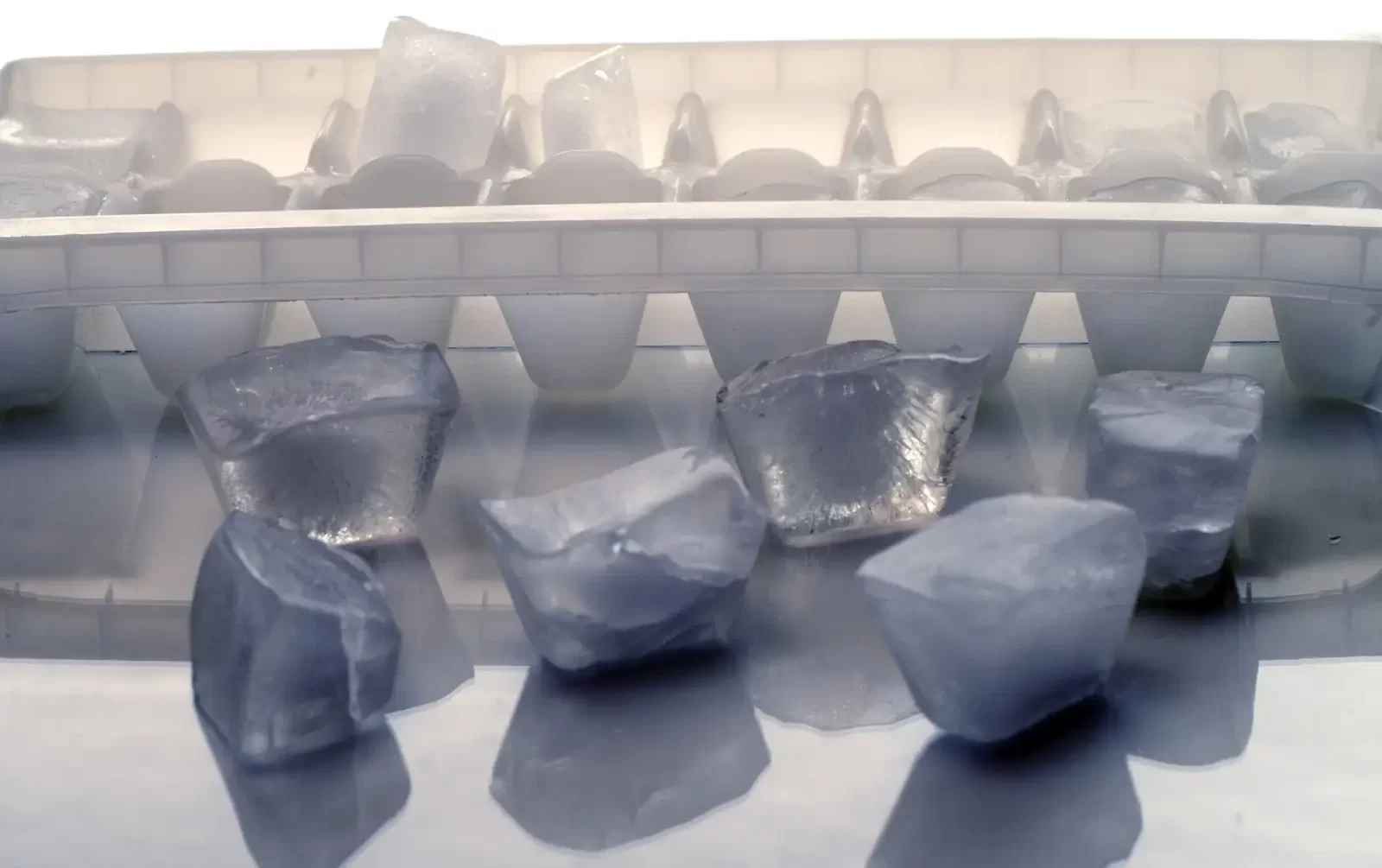A long time ago I realized every house needs an ice cracker. This was in the early 1980’s when we were living in Gainesville, Florida. Jodi and I had moved there to start a solar business with my brother. His wife and I were talking one day and we discovered that each of us was the only one who cracked the ice in our respective households. This was before automatic ice makers were common.
Cracking ice is the process of emptying the frozen ice cubes into a container to be stored in the freezer, then refilling the trays with fresh water to make new cubes. Both steps are important. We were lamenting the fact that if we didn’t crack the ice, nobody did. In fact, if there was no cracked ice, others in the household would pilfer the ice cube trays. This is removing only the cubes one needs, leaving a tray with some empty spaces and some frozen cubes. The most egregious form of pilfering is leaving an entirely empty tray or tray with only one frozen cube.
I realized that most houses only have one ice cracker because everybody else in the house depends on the one who is willing to do it. I am at peace with this. In the succeeding 35 years I have willingly been the ice cracker in my household. It is my contribution to the family. If I know I’m going away, I am vigilant about making sure we have plenty of ice in the freezer bin so they don’t run out while I’m gone. I care about my family that much.
There is a lesson here (you knew this, right?).
While ice cracking may not be considered overfunctioning, it points to the family process that occurs with overfunctioning.
Ideally, when we are functioning in healthy ways, we take responsibility for ourselves, but not others. When we underfunction, we depend on, or allow, others to take responsibility for us. When we overfunction, we take responsibility for others, when they should be taking responsibility for themselves.
Here’s the family process point. Overfunctioners and underfunctioners almost always come together.
You can’t underfunction unless someone is willing to overfunction for you, and vice versa.
Being the only ice cracker in the house is a form of overfunctioning. You are allowing others in the house to enjoy having ice without doing any work for it. According to family process theory, they will never learn to crack their own ice as long as you crack it for them.
You can’t make another person responsible.
In fact, to the extent that you try to make them responsible, you actually take away their responsibility. This is overfunctioning.
When we overfunction, it’s a sign that we have a low threshold for the pain of others. If I’m not willing to allow others to go without ice because they won’t crack their own ice, then I’m overfunctioning.
If you want someone else to be more responsible, then increase your threshold for their pain. Ask yourself, “What pain of theirs am I unable to tolerate? What can I do to let them go through it so they can develop their own capability?”
This is not easy, but it’s at the heart of self-differentiation. When we function in self-differentiated ways, we take responsibility for ourselves, but not others. This is not being selfish. It’s being healthy. You can decide to do things for others, as long as you understand what you’re doing and you don’t resent it. And, as long as it is not promoting underfunctioning in unhealthy ways.
So, as I said, I’ve made my peace with being the ice cracker in my house. It’s my contribution to the family. My kids are now all grown and living on their own. I’m going to have to ask them who the ice cracker is in their house. Or, maybe they just have an icemaker.


